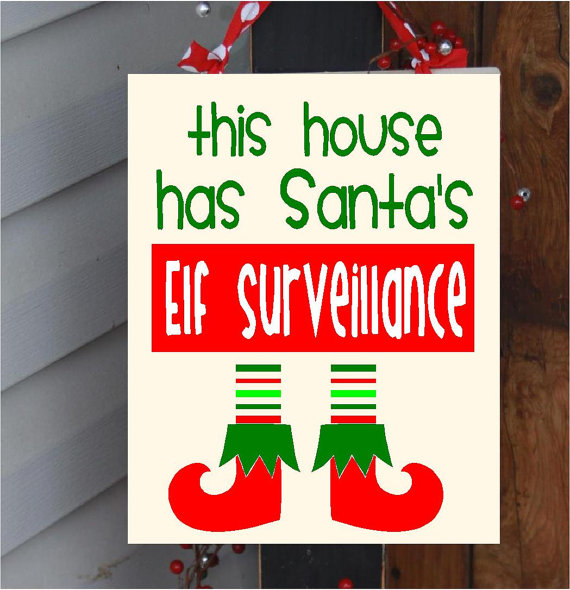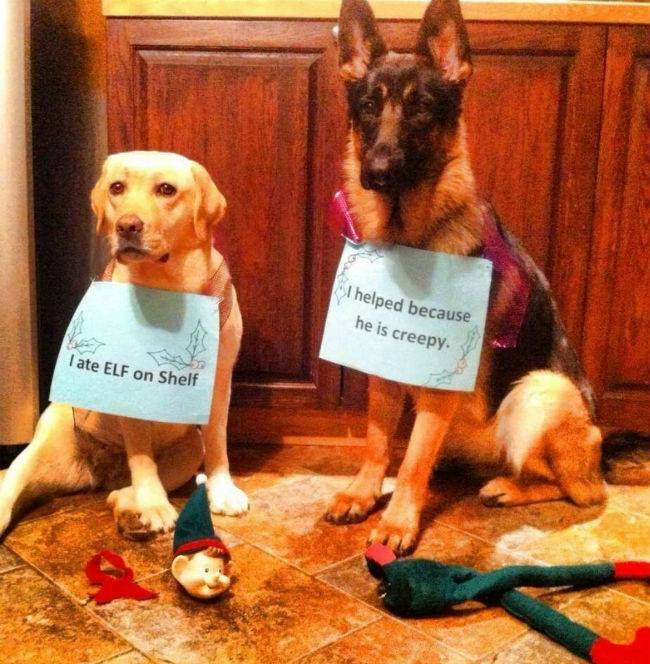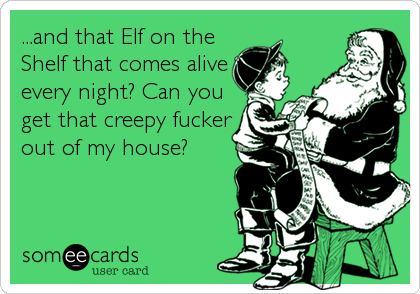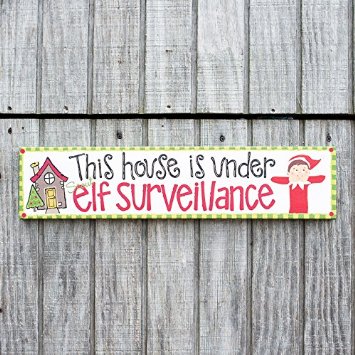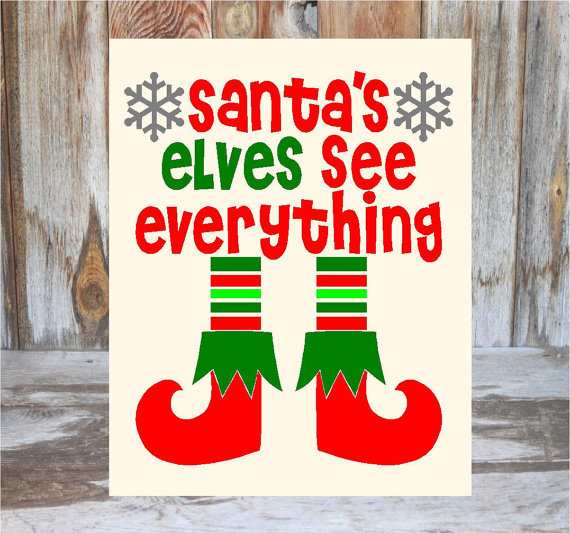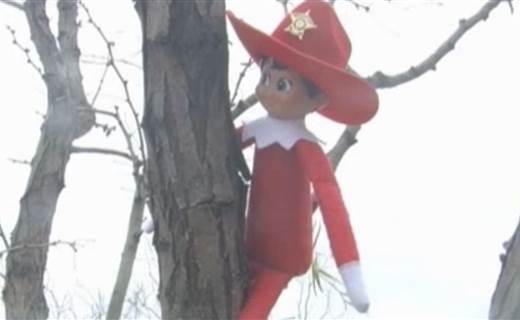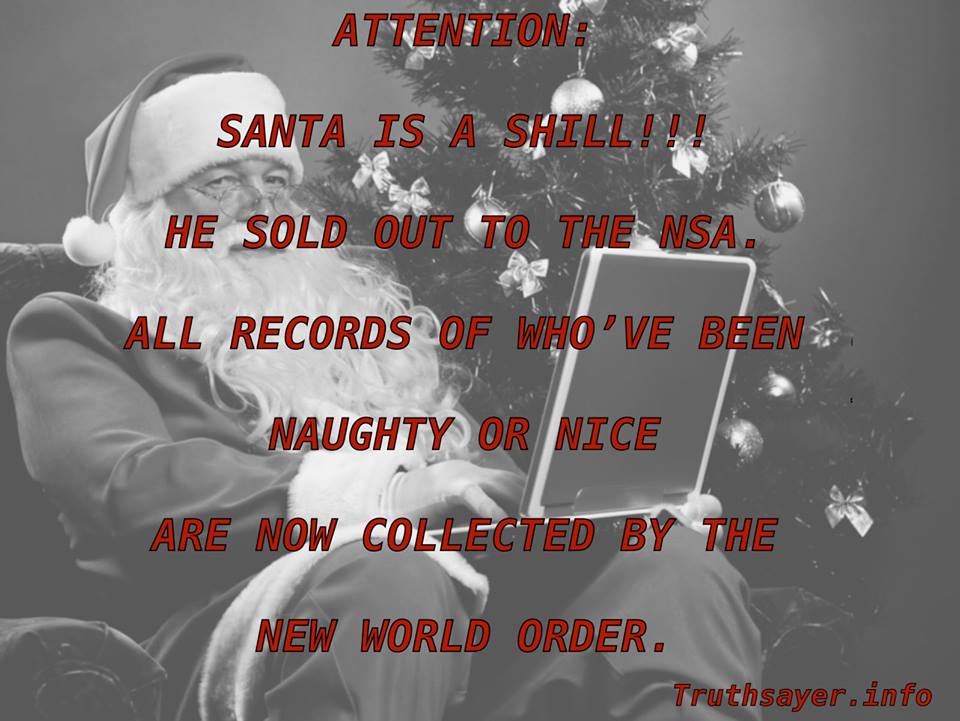Elf on Shelf Toy Teaches Kids to Love Surveillance Society
I mean, really, this goes so far beyond the idea that Santa is keeping tabs from the distance North Pole – this toy elf is in your living room, your kitchen, your bedroom… even the bathroom? (Gotta make sure they brush…)
NSA & Co. are collecting and analyzing every phone call and total Internet activity throughout the country, and profiling who’s been a good consumer and a loyal, blind American dupe during all the unconstitutional spying, wars, bank heists and provocateuring going on over the last few decades. Don’t be caught being a dissident!
The NSA’s making a list and checking it thousands of times an hour… and this year, the “Elf on Shelf” can help make that experience more, umm… personal. Let’s just say, we were a little bit creeped by its larger implications for conditioning children to accept total surveillance.
There are even extra outfits you can buy to make your Elf one of the family, keeping an eye out for the Big Boys in government, while hanging out with you! It was kind of like this Christmas’ Tickle Me Elmo, but updated for the 21st Century Big Brother society.
And check out the parallels to Terry Gilliam’s cult-classic Brazil (1985), where phony terrorism has made the consumerist society apathetic and closely watched, even during the holidays, when Santa’s helper is Mr. Helpmann, the Minister of Information in an information obsessed total surveillance society and feeds on torture and oppression.
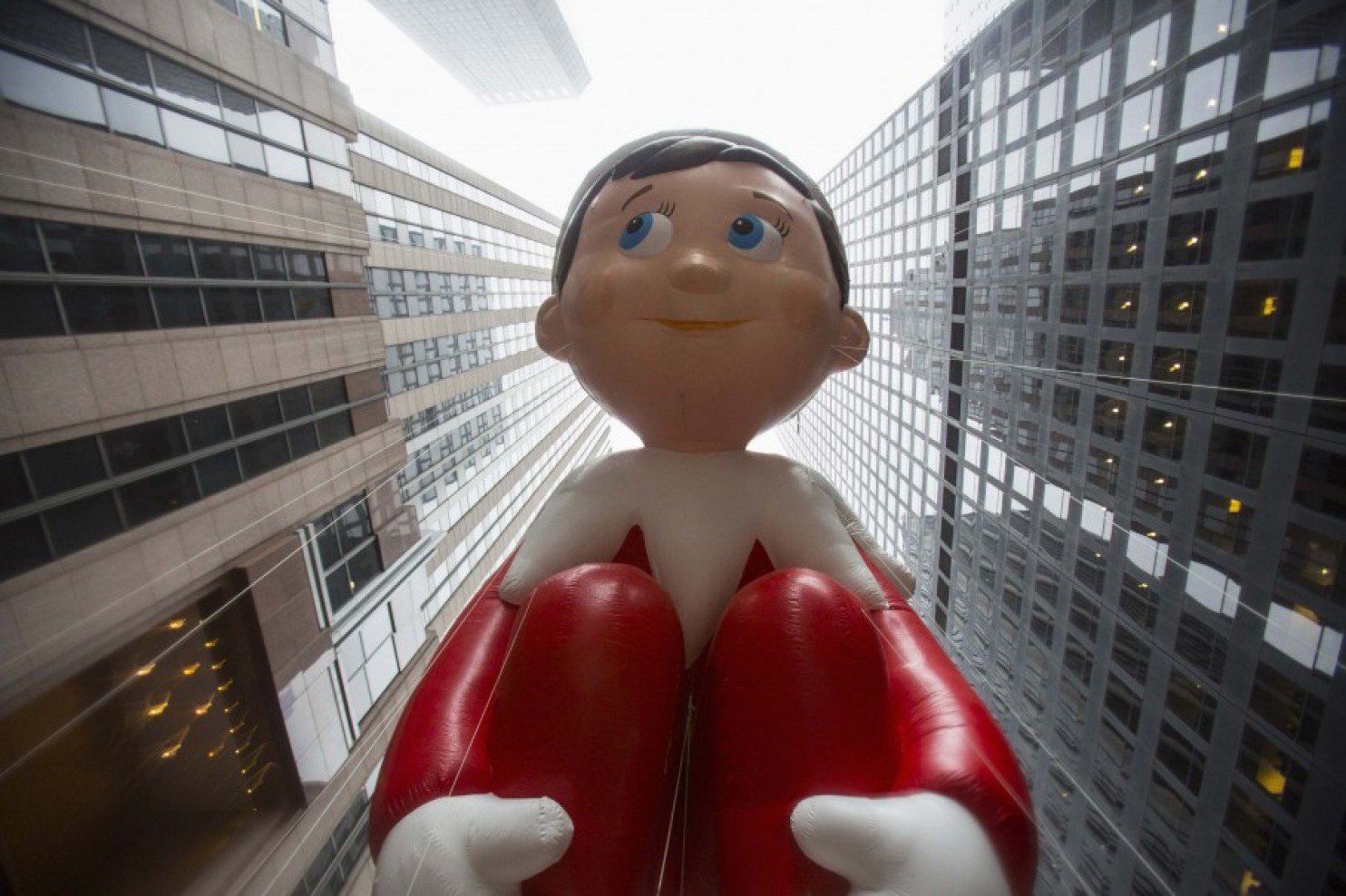
The Elf on the Shelf balloon floats down Sixth Avenue — with eyes wide open — during the Macy’s Thanksgiving Day Parade in New York. (Andrew Kelly/Reuters)
For some, the Elf on the Shelf doll, with its doe-eyed gaze and cherubic face, has become a whimsical holiday tradition — one that helpfully reminds children to stay out of trouble in the lead-up to Christmas.
For others — like, say, digital technology professor Laura Pinto — the Elf on the Shelf is “a capillary form of power that normalizes the voluntary surrender of privacy, teaching young people to blindly accept panoptic surveillance and” [deep breath] “reify hegemonic power.”
The latter perspective is detailed in “Who’s the Boss,” a paper published by the Canadian Centre for Policy Alternatives, in which Pinto and co-author Selena Nemorin argue that the popular seasonal doll is preparing a generation of children to uncritically accept “increasingly intrusive (albeit whimsically packaged) modes of surveillance.”
“The Elf on the Shelf” is both a book and a doll. The former is a soft pixie scout elf that parents are instructed to hide around the house. The accompanying book, written in rhyme, tells a Christmas-themed story that explains how Santa Claus keeps tabs on who is naughty and who is nice.
The book describes elves hiding in children’s homes each day during the holidays to monitor their behavior before returning to the North Pole each night with a report for “the boss.”
Because we live in a world grappling with corporate smartphone surveillance, behavior management apps in the classroom and private communication interceptions by various governments, Pinto — a digital technology professor at the University of Ontario Institute of Technology — sees the Elf on the Shelf dolls as one development among many threatening our collective definition of privacy.
If she’s right, in all likelihood she’s fighting a losing battle. The Elf on the Shelf book sold over 6 million copies and joined the Macy’s Thanksgiving parade last year, according to the Daily Mail.
Here’s a creepy video.
Until the introduction of Elf on the Shelf, Santa’s mythological helpers had always been relegated to the toy workshop, Pinto said. After the story and toy were introduced by Chanda Bell, a onetime Atlanta reading teacher, the traditional narrative changed to include the hiding, surveillance and back-and-forth travel, Pinto said.
“As evidenced by the millions of books and dolls sold,” the Toronto Star writes, “the story has become a cultural phenomenon, with parents littering their social media feeds with photos of the elf in strange places.”
Facebook, in fact, is how Pinto said she originally became aware of the doll. Last December, she began to see her Facebook friends who have kids posting Elf on the Shelf photos.
The more she read about the doll and the rules that accompany it, the more she began to feel like the game that resonated with the purpose of the infamous panopticon, Jeremy Bentham’s 18th Century design for a model prison (a central tower in a circular structure, surrounded by cells that made it impossible for prisoners to know if they were being watched).
She writes:
Elf on the Shelf presents a unique (and prescriptive) form of play that blurs the distinction between play time and real life. Children who participate in play with The Elf on the Shelf doll have to contend with rules at all times during the day: they may not touch the doll, and they must accept that the doll watches them at all times with the purpose of reporting to Santa Claus. This is different from more conventional play with dolls, where children create play-worlds born of their imagination, moving dolls and determining interactions with other people and other dolls. Rather, the hands-off “play” demanded by the elf is limited to finding (but not touching!) The Elf on the Shelf every morning, and acquiescing to surveillance during waking hours under the elf’s watchful eye. The Elf on the Shelf controls all parameters of play, who can do and touch what, and ultimately attempts to dictate the child’s behavior outside of time used for play.
“The whole thing with panopticonism under the Jeremy Bentham structure,” Pinto said, “is that you never quite knew if you were being watched or not and that forced you into behaving in a certain way. The elf is the same way.”
Pinto said she’s not the first person to be troubled by Elf on the Shelf’s surveilling. She’s said parents routinely contact her to say they changed the rules of the game after it made their families uneasy. And many kids, she said, often intuitively feel like spying and being a tattletale is wrong.
“A mom e-mailed me and told me that the first day they read the elf book and put the elf out, her daughter woke up crying because she was being watched by the elf,” Pinto recounted. “They changed the game so it wouldn’t scare the child.”
Emma Waverman, a blogger with Today’s Parent, told the Star that the idea of the elf watching someone all the time is “creepy.”
“It makes the motivation to behave something that’s external,” she told the paper. “If I’m not around or if the elf is not around, do they act crazy?
Translated into academia-speak, Pinto and Nemorin make a similar point in Who’s the Boss?
“What is troubling,” they write, “is what The Elf on the Shelf represents and normalizes: anecdotal evidence reveals that children perform an identity that is not only for caretakers, but for an external authority (The Elf on the Shelf), similar to the dynamic between citizen and authority in the context of the surveillance state.”
Liberal newspapers like The Washington Post will grant a wide berth to leftist academics on their silliest-sounding ideas. I found this gem in my Washington Post Express tabloid the other day. Post reporter Peter Holley asked this question in a headline about the “Elf on the Shelf” phenomenon: “Cute doll? Or Big Brother on a shelf?”
The doll apparently teaches children to live submissively in a national surveillance state:
For some, the Elf on the Shelf doll, with its doe-eyed gaze and cherubic face, has become a whimsical holiday tradition — one that helpfully reminds children to stay out of trouble in the lead-up to Christmas.
For others — like, say, digital technology professor Laura Pinto — the Elf on the Shelf is “a capillary form of power that normalizes the voluntary surrender of privacy, teaching young people to blindly accept panoptic surveillance and” [deep breath] “reify hegemonic power.”
….Pinto and co-author Selena Nemorin argue that the popular seasonal doll is preparing a generation of children to uncritically accept “increasingly intrusive (albeit whimsically packaged) modes of surveillance.”
Before you burst out laughing, know that Pinto comes across as extremely friendly and not at all paranoid on the phone. She’s also completely serious.
If she’s right, in all likelihood she’s fighting a losing battle. The Elf on the Shelf book sold over 6 million copies and joined the Macy’s Thanksgiving parade last year, according to the Daily Mail.
“I don’t think the elf is a conspiracy and I realize we’re talking about a toy,” Pinto told The Post. “It sounds humorous, but we argue that if a kid is okay with this bureaucratic elf spying on them in their home, it normalizes the idea of surveillance and in the future restrictions on our privacy might be more easily accepted.”
“What is troubling,” they write, “is what The Elf on the Shelf represents and normalizes: anecdotal evidence reveals that children perform an identity that is not only for caretakers, but for an external authority (The Elf on the Shelf), similar to the dynamic between citizen and authority in the context of the surveillance state.”
— NBC News
For Fun
